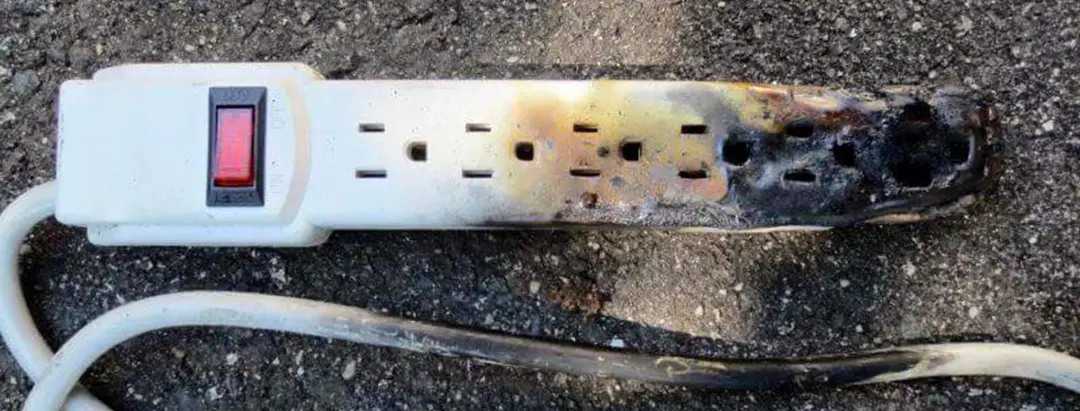There’s a lot at stake with Home Electrical Safety in Colorado, from winter outages to old wiring. You need clear, practical steps to protect your home and loved ones. Primary Electrical Services brings over 40 years of experience serving Denver Metro and the Front Range. Call (720) 530-9809 for a free safety inspection.
The Importance of Electrical Safety in Colorado
Harsh winters, high-altitude wear, and aging wiring raise fire and shock risks in Colorado homes. You face prolonged outages and ice-damaged lines that stress panels. After 40+ years serving Denver Metro and the Front Range, PES sees failures in pre-1970s houses often. You lower risk with GFCIs, AFCIs, whole-home surge protection, and yearly NEC 2023 inspections. Call (720) 530-9809 for a free safety inspection.
Unique Risks and Challenges
Many Denver historic homes contain aluminum wiring installed before the 1970s. Aluminum connections oxidize and overheat, raising fire risk. You rely on space heaters in winter, so maintain a three-foot clearance. Ice and wind topple lines, causing outages that strain backup generators. High altitude brings wider temperature swings and stronger UV, which degrade insulation. PES technicians often find frayed outdoor cable jackets after heavy Colorado winters.
Understanding NEC Compliance
NEC 2023 sets baseline rules for safe residential wiring. Areas in Colorado often add local amendments you must follow. You need GFCIs in wet locations per NEC 210.8, and AFCIs per NEC 210.12. Whole-home surge protection falls under NEC 285, while generators follow NEC 702. Proper grounding references NEC 250.50 for effective fault clearing. Permits and inspections ensure installations meet code and pass municipal review.
Failing an inspection can force costly rework and long delays. Insurance claims may be denied for installations that ignore NEC 2023 rules. You should hire a licensed electrician to pull permits and submit to local inspections. PES, with 40+ years in Colorado, helps ensure your upgrades meet NEC 2023 and pass inspection.
Outdated Wiring and Its Risks
Homes built before 1970 often contain aluminum or cloth-insulated wiring that degrades and overheats. Loose connections and oxidation raise fire risk and cause flickering lights. Knob-and-tube and ungrounded two-prong outlets lack modern protections required by NEC 2023. You can consult our 11 Shocking Home Electrical Safety Tips and call PES at (720) 530-9809 for a free safety inspection by a team with 40+ years’ experience.
Identifying Aluminum Wiring
You can spot aluminum wiring by silver-colored conductors and “Al” or “Aluminum” markings on sheathing. Warm or discolored outlets, loose-fitting plugs, and burn marks signal compromised connections. Check service records for pre-1970s installations common in Denver historic districts. Only licensed electricians should test and repair aluminum splices using CO/ALR-rated devices or full rewire solutions. Call PES for a documented inspection and safe repair plan.
Upgrading Your Electrical System
Upgrading to a 200A service and a modern panel fixes many hazards in older homes. AFCI and GFCI breakers add arc and shock protection per NEC 2023. Grounded three-prong outlets and dedicated circuits for ranges and dryers reduce overloads. Permit pull and professional installation protect you from code violations. PES provides free estimates so you get a clear plan.
A panel upgrade often costs $1,500 to $4,000 depending on labor and materials. You will receive a written quote after an on-site inspection. Full rewires for older two-story homes commonly range $8,000 to $25,000 based on square footage. AFCI protection now covers bedrooms, living areas, and kitchens under NEC 210.12. Typical panel swaps take one to three days. PES pulls permits, tests grounding, installs AFCI/GFCI devices, and provides a written compliance report.
Installing Safety Features
You can upgrade key devices to cut risks. Install AFCI breakers in bedrooms and kitchens per NEC 210.12. Add GFCI outlets in wet areas per NEC 210.8. Fit whole-home surge protection compliant with NEC 285 to guard appliances from storms and lightning. Primary Electrical Services brings 40+ years in Colorado. You can schedule a free inspection at (720) 530-9809 or read our 11 Shocking Home Electrical Safety Tips.
GFCI Outlets in Vulnerable Areas
Place GFCI outlets in bathrooms, kitchens, garages, basements, and outdoor receptacles per NEC 210.8. GFCIs trip within 30 milliseconds on 4–6 mA leakage to protect you from shocks. You should test each outlet monthly using the built-in test button. Older GFCIs over 10 years old may fail and should be replaced by a licensed electrician. PES can map your home and install code-compliant GFCIs in one visit.
Whole-Home Surge Protection
Install a Type 1 or Type 2 surge protective device at your service panel per NEC 285. You can protect HVAC, refrigerators, and electronics from utility and lightning-induced surges. Colorado’s frequent summer storms and winter grid switching make SPDs a smart investment. PES installs UL-listed SPDs and verifies coordination with your panel during one appointment.
Look for UL 1449-listed SPDs with visible status lights and a kA rating suited to your grid. Response time is measured in nanoseconds. Lower let-through voltage under 600 volts gives better protection for sensitive gear. Coordinate SPD installation with panel grounding and bonding to meet NEC 250 requirements. Replace SPDs after a major surge or per manufacturer warranty, often around 10 years. PES reviews your panel’s capacity and recommends an SPD sized to your home and load profile.
Preventing Electrical Overload
Overloads happen when you exceed a circuit’s capacity. Typical kitchen and bedroom circuits are 15A or 20A at 120V, giving 1,800W or 2,400W limits. Avoid chaining multiple high-wattage appliances on one circuit. Call PES at (720) 530-9809 to add dedicated circuits or upgrade panels. See official Electrical Safety Information for guidelines.
Understanding Circuit Capacity
Circuit amp rating tells you how much load a circuit can safely carry. NEC guidance limits continuous loads to 80% of breaker rating. A 15A circuit at 120V should not carry more than 1,440 watts continuously. Match wire size: 14-gauge for 15A, 12-gauge for 20A. Have PES verify panel capacity and label circuits.

Managing High-Wattage Devices
High-wattage devices like space heaters draw about 1,500W each. Electric ovens and dryers can demand 3,000 watts or more. EV chargers often require 240V circuits rated 30A or higher, delivering several kilowatts. Give each big appliance a dedicated circuit or stagger operation times. PES can install 240V circuits for EVs and heavy loads.
Add device wattages to size circuit loads before plugging everything in. Use Amps = Watts ÷ Volts to calculate draw. Example: two 1,500W heaters on a 15A circuit draw 25A at 120V. That overload will trip the breaker or heat wiring dangerously. Have PES evaluate loads and install timers, subpanels, or dedicated circuits.
Maintaining Safety Devices
Smoke Detectors and Their Importance
Place smoke detectors on every level and inside each bedroom, per NFPA 72, to give you early alerts. Hardwired units with battery backup protect you during winter outages common in Colorado. Dual-sensor models spot smoldering and flaming fires faster than single-sensor types. Replace any unit older than 10 years and swap batteries yearly or after outages. PES can install NFPA-compliant, interconnected alarms so the whole house notifies you at once.
Regular Testing Recommendations
Test all alarms monthly by pressing each unit’s test button. Hold it at least five seconds to verify the horn and interconnect signals. Replace 9V or AA batteries every 12 months, or after any power outage. For hardwired systems, have a licensed electrician verify wiring and battery backups annually. You can log tests in a calendar or use smart detectors that report status to your phone. PES offers annual testing and replacement to meet NFPA 72 standards.
NFPA data shows about three of five home fire deaths occur in homes without working smoke alarms. You must act promptly when a unit fails a test. Clean detector vents twice a year with a vacuum crevice tool. Dust buildup can cause false alarms or sensor failure. Replace any unit that chirps, fails the test, or is over ten years old. Keep a test log with dates and notes, and call PES if multiple units fail during a single inspection.
Outdoor Electrical Safety
Outdoor wiring in Colorado faces snow, ice, UV exposure, and high-altitude wear that shorten component life. You should inspect exterior lights, receptacles, and extension cords for cracked insulation, corrosion, or loose mounts. Replace wet-location fixtures and use GFCI protection on all outside outlets per NEC 210.8. Call PES at (720) 530-9809 for a free safety inspection—40+ years serving Denver and the Front Range.
Inspecting Outdoor Wiring
Inspect for frayed insulation, exposed conductors, and loose connections after storms or heavy snow. Look for melted sheathing, scorch marks, or green corrosion on aluminum parts. Check that conduit and junction boxes are sealed and that fixture gaskets remain pliable. Test exterior GFCIs monthly and reset if tripped. If you find damage, contact PES at (720) 530-9809 for professional repair and weather-resistant upgrades.
Weather-Resistant Installations
Use outdoor-rated, wet-location fixtures and NEMA-rated boxes with gaskets for all exterior wiring on your property. Choose UV-resistant cable and PVC or metal conduit to shield runs from sun, hail, and abrasion. Install in-use weatherproof covers and GFCI protection at every exterior outlet. Seal panel penetrations with electrical-grade caulk. You can rely on PES—NEC 2023 compliant—to install stainless hardware and listed connectors for long service life.
Have your buried lines run in conduit or use UF-B cable listed for direct burial to protect against moisture and rodent damage. Mount landscape transformers elevated and ventilated to prevent pooling water. Use listed silicone gaskets at fixture and box interfaces to stop moisture intrusion. For aluminum-to-copper splices, apply anti-oxidant compound and listed connectors to prevent corrosion. In a recent Denver job, PES replaced corroded fixtures and added PVC conduit, eliminating recurring storm-related shorts.
Final Words
Presently you must act to keep your Colorado home safe with strong Home Electrical Safety practices. Follow the 11 tips, schedule annual inspections, and call pros when you need repairs. Doing so reduces fire, shock, and outage risks in your house. Trust Primary Electrical Services for expert inspections and NEC-compliant upgrades.
